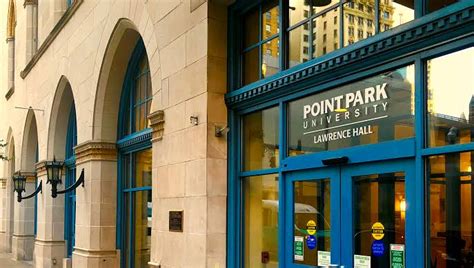Are you considering attending Point Park University? If so, one of the first things you’ll need to do is figure out how you’re going to pay for it. Tuition at Point Park University can vary depending on your program of study, but it’s important to have a general idea of what to expect before you start applying for financial aid.

How Much Does Tuition Cost at Point Park University?
For the 2022-2023 academic year, tuition at Point Park University is as follows:
- Undergraduate students: $33,410 per year
- Graduate students: $19,800 per year
These rates are for full-time students. Part-time students pay a different rate, which is calculated based on the number of credits they take.
What is Included in Tuition?
Tuition at Point Park University covers the cost of instruction, as well as access to the university’s facilities and resources. This includes:
- Classroom instruction
- Library access
- Computer labs
- Student support services
- Athletic facilities
Financial Aid Options
There are a number of financial aid options available to help you pay for tuition at Point Park University. These include:
- Scholarships: Scholarships are grants that do not need to be repaid. They are awarded based on academic merit, financial need, or other criteria.
- Grants: Grants are also grants that do not need to be repaid. They are typically awarded to students with financial need.
- Loans: Loans are borrowed money that must be repaid with interest. They are available to both undergraduate and graduate students.
- Work-study: Work-study is a program that allows students to work on campus to earn money to help pay for their education.
How to Apply for Financial Aid
To apply for financial aid at Point Park University, you will need to complete the Free Application for Federal Student Aid (FAFSA). The FAFSA is a form that collects information about your income and assets. This information is used to determine your eligibility for financial aid.
Tips for Saving Money on Tuition
There are a number of things you can do to save money on tuition at Point Park University. These include:
- Apply for scholarships and grants. There are many scholarships and grants available to students who attend Point Park University. Be sure to do your research and apply for any scholarships or grants that you are eligible for.
- Take advantage of financial aid. If you qualify for financial aid, be sure to accept it. Financial aid can help you pay for tuition, fees, and other educational expenses.
- Work while you’re in school. Working while you’re in school can help you offset the cost of tuition. There are many on-campus jobs available to students.
- Take summer classes. Summer classes can help you accelerate your degree program and graduate sooner. This can help you save money on tuition in the long run.
Conclusion
Attending Point Park University can be a great investment in your future. However, it’s important to make sure that you can afford the cost of tuition before you enroll. By exploring the financial aid options available and taking advantage of tips for saving money on tuition, you can make your dream of attending Point Park University a reality.
Additional Information
Here are some additional resources that you may find helpful:
Frequently Asked Questions
Q: How much does tuition cost at Point Park University?
A: Tuition at Point Park University for the 2022-2023 academic year is $33,410 for undergraduate students and $19,800 for graduate students.
Q: What is included in tuition?
A: Tuition at Point Park University covers the cost of instruction, as well as access to the university’s facilities and resources. This includes classroom instruction, library access, computer labs, student support services, and athletic facilities.
Q: How can I apply for financial aid?
A: To apply for financial aid at Point Park University, you will need to complete the Free Application for Federal Student Aid (FAFSA).
Q: What are some tips for saving money on tuition?
A: Some tips for saving money on tuition at Point Park University include applying for scholarships and grants, taking advantage of financial aid, working while you’re in school, and taking summer classes.
